Our Elders – Written Off or Written In

by Michael Feeley
In accounting, when something is “written off,” it’s declared worthless—removed from the books as having no value. And somewhere along the way, our society began applying this ruthless calculation to human beings.
We write people off as they age.
We see wrinkles and white hair and assume incompetence.
We hear slower speech and mistakenly attribute it to diminished intelligence.
We watch someone struggle with technology and conclude they have nothing left to offer.
This is tragically wasteful. Heartbreaking. Unkind.
Every person we “write off” carries decades of accumulated wisdom, hard-won insights, and irreplaceable experience. They’ve weathered storms we haven’t faced, solved problems we’ve yet to encounter, and developed perspectives that only come from having truly lived. When we dismiss them, we impoverish ourselves at the same time.
What if, instead of writing people off, we wrote them in?
To be “written in” means to be actively included, valued, and recognized as essential. It means acknowledging that life experience isn’t a liability—it’s an asset that appreciates over time. While bodies may age, minds can continue to grow, adapt, and contribute in profound ways.
Writing someone in means seeking their counsel before major decisions. It means recognizing that their seemingly “outdated” skills may actually be timeless wisdom. It means understanding that their stories aren’t just reminiscences—they’re living history and roadmaps for navigating life’s complexities.
In many cultures, elders are revered as keepers of knowledge, wise ones whose judgment is sought and respected. We’ve somehow inverted this wisdom, treating age as something to hide and dismiss rather than honor.
The accounting metaphor reveals our mistake: we’re using the wrong valuation method. We’re treating people like depreciating assets when they’re actually appreciating ones—growing more valuable with time, experience, expertise, credentials, and accumulated wisdom.
We’ve borrowed the wrong tools from the wrong genre. You don’t need much empathy for accounting, but it is crucially essential when respecting and caring for another human being.
Empathy allows us to see beyond the surface changes of aging to the rich inner lives, accumulated wisdom, and continued potential that exists within each person. Without empathy, we reduce complex human beings to simple calculations about productivity or relevance. With it, we discover the irreplaceable value that can never be quantified on any balance sheet.
Every graying head contains a vast library.
Every lined face tells a story worth hearing.
Every slower step carries the valuable weight of a life fully lived.
It’s time to close the books on “writing off” our elders and start “writing them in”—not as fading footnotes, not as sunk costs to walk away from, but as essential living chapters in the ongoing story of human wisdom, resilience, and the precious human beings we genuinely care about, work with and learn from.
Thanks – Michael (he, him)
Please share this Daily with your tribes.
This also matters – An African Proverb on Aging.
#2061





